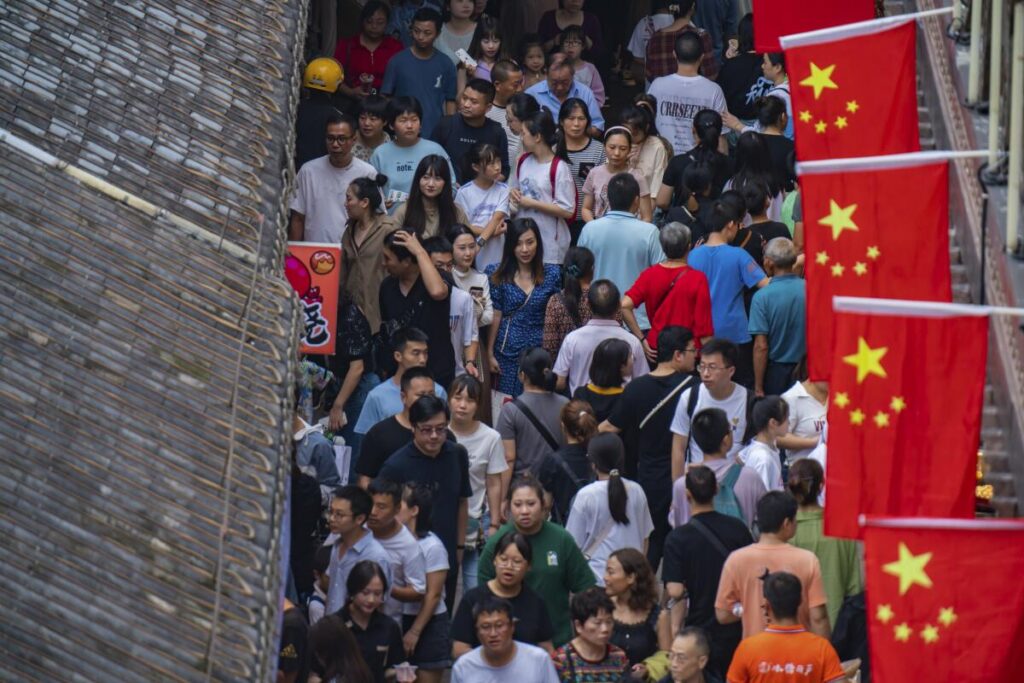
Chinese tourists jammed popular sites as travel bounced back to pre-pandemic levels during a recent eight-day national holiday, giving a temporary boost to China’s flagging economy.
The government said that tourism revenues reached about 753 billion yuan ($103 billion) during the combined Mid-Autumn Festival and National Day holiday period that ended Friday, a rise of 1.5% over 2019 and 130% compared to last year when pandemic restrictions were still in place.
China maintained locked-downs and other restrictions much longer than most other countries, enforcing a “zero-COVID” policy until last December. But a hoped-for consumer spending boom after the lifting of restrictions hasn’t materialized, as many Chinese remain cautious with an unfolding real estate crisis weighing on the economy and youth unemployment topping 20%.
That didn’t stop tourists from flocking to the Great Wall and the teeming pedestrian-only shopping streets in Shanghai, Beijing and other cities. Few wore protective masks in shoulder-to-shoulder crowds in night markets and other popular destinations.
Planes and high-speed trains were heavily booked over the holiday. The tourism ministry said that 826 million domestic trips were made, up 4.1% from 2019 and 71.3% from last year.
China’s border authorities processed 11.8 million entries and exits during the recent holiday, a nearly three-fold increase over last year when people entering China still faced mandatory quarantine, but only 85% of the total in 2019, the National Immigration Administration said.
Booking agency Trip.com said that outbound travel volume during the holiday was more than eight times higher than in 2022. Popular destinations included Thailand, Singapore, Malaysia and South Korea, and travel to more distant countries such as Switzerland, Spain, Turkey, the United Kingdom and France grew compared to the last major national holiday in May.
China’s economy has shown signs of a possible emergence from its post-pandemic malaise recently, recording its first expansion in factory activity in six months.




